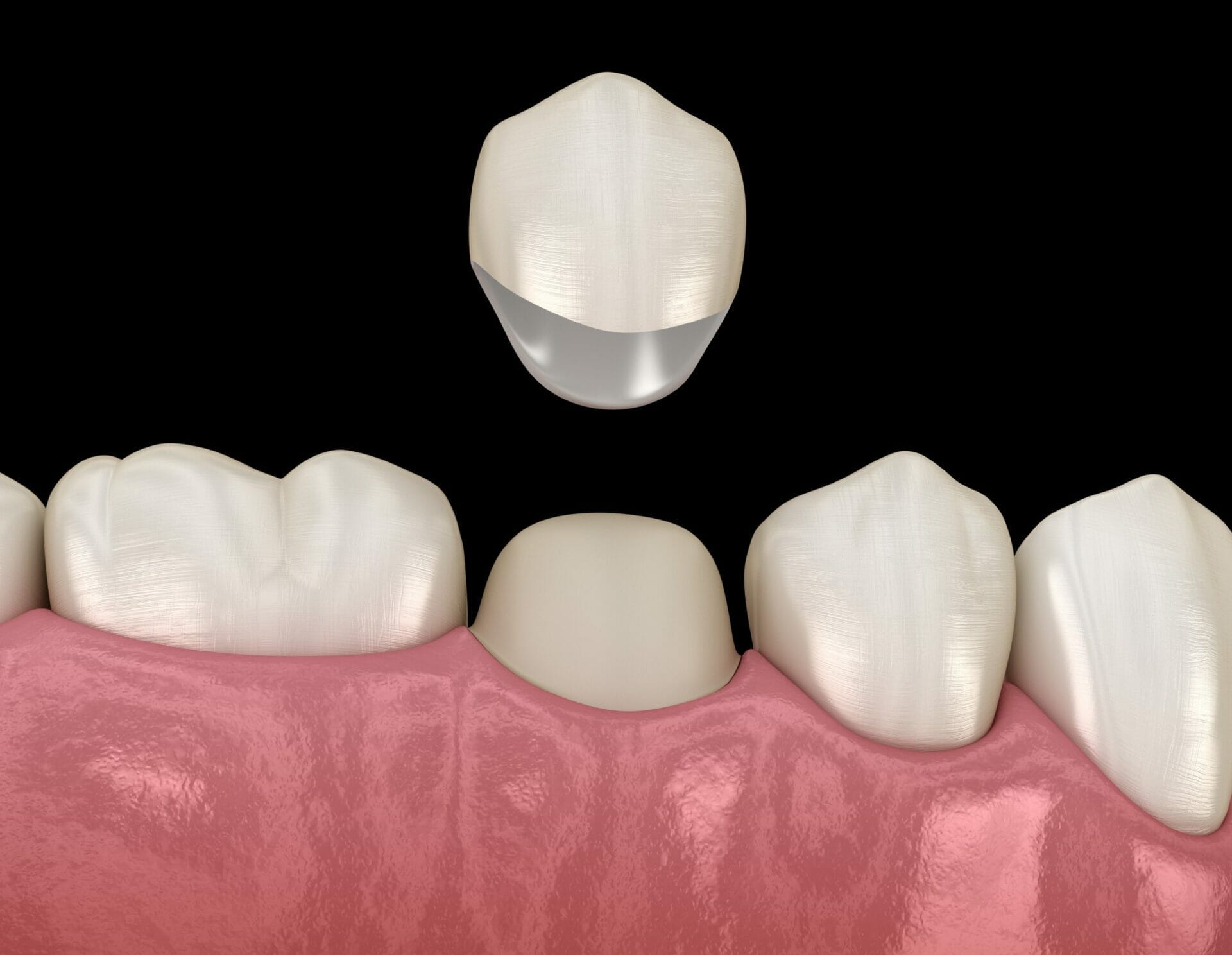
I am a Dentist in Kitchener, ON, and each week I like to explore a question that I commonly get at my Kitchener Family Dental office. This week, I'd like to outline how dental crowns work and under what circumstances they're necessary.
Patients often want to know more about Dental Crowns, especially how crowning their teeth will help them. And for good reason. Dental crowns cost roughly $1,000 and so patients want to make sure that a crown will provide value to them. So, what do crowns do and how do they work? Both are really important questions. Below, I provide a simple explanation to help you better understand the value of the Dental Crown.
Any tooth in your mouth can break or fracture. The chance of your tooth breaking is directly related to how much dental work has been done on that tooth. A tooth with a small filling has a higher fracture risk than an untreated tooth. And a tooth with a large filling in it has a higher fracture risk compared to the tooth with the small filling in it. Root canal treated teeth are at the greatest risk of future fracture.
Well, dental crowns act to protect fracture prone teeth. When you play contact sports, you wear pads and protective equipment. If you play Hockey or Football, you wear a helmet. If you've had previous concussions or other head injuries, you really need that helmet. Well, a dental crown is a helmet for your tooth.
In short, a crown protects and reinforces any tooth it is covering. It dramatically reduces the risk of that tooth breaking. Simple as that.
We've already established that Dental Crowns act like a helmet for your tooth. But, how do they do this and how do they work? The crown is a 1-2mm thick cap or shell that fits over your entire tooth. The crown can be made of white porcelain. It can be made of a metal alloy or even gold. When you chew on a dental crown, the forces are distributed throughout the entire crown. Because of this, you cannot split the tooth underneath the crown. The crown keeps it all together.
Many patients want to know if the crown is removable or permanent. Your Kitchener Dentist will cement or bond the custom crown to your tooth. You don't take your crown out at night - it stays in all the time. For most patients, they just forget they have a crown because it behaves like other teeth in the mouth and requires no special maintenance beyond routine brushing and flossing.
A dental crown acts like a helmet to encase and protect a fracture-prone tooth. Do all teeth need dental crowns? Certainly not. Generally, crowns are necessary for teeth that contain large fillings or those that have undergone root canal treatment.
A dental crown is non-removable. Your Family Dentist bonds it permanently to your tooth. If your Kitchener Dentist recommends a crown, it is likely to have value by protecting your tooth long-term.
If you'd like to learn more about Dental Crowns in Kitchener, please check out my Definitive Guide to Dental Crowns.
I hope you've found today's article useful and I thank you for reading!
If you are in need of tooth repair, dental crowns or emergency dental services in Kitchener, give us a call at (519) 576-8160 or request a consult with me here.
Our Kitchener Dental Clinic is centrally located in downtown Kitchener and provide dentistry to Kitchener, Waterloo, Cambridge, Breslau, Elmira and surrounding areas.
This article is meant to promote understanding of and knowledge about general oral health topics. It is not intended to be a substitute for professional advice, diagnosis or treatment. Always seek the advice of your Kitchener Dentist or other qualified healthcare provider with any questions you may have regarding a dental condition or treatment.
Services
Routine Dentistry & Tooth Repair
Oral Surgery & Tooth Removal
Prosthetic Dentistry & Tooth Replacement
Protective/Preventive Services
Teeth Whitening
Schedule an Appointment Now
